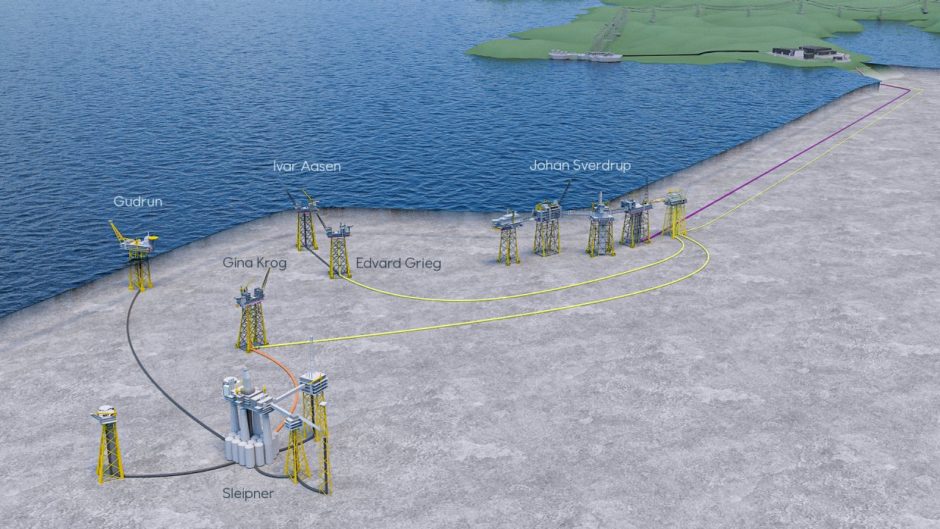
Energy giant Equinor is to move forward with plans to “partially electrify” a field in the Norwegian section of the North Sea.
A new proposal will see the Sleipner field, owned by Equinor and partners Var Energi, Lotus and Kufpec, connected via a power cable to the Gina Krog platform, and tied into the area from shore.
The partner group announced they will now submit the revised £36 million plan for development to the authorities.
Anders Opedal, Equinor’s executive vice president for technology, projects and drilling, said: “Today, we are pleased to submit development plans for Sleipner electrification that will provide both ripple effects and major new emission cuts on the Norwegian continental shelf.
“This investment will contribute to further develop the NCS toward the goal of zero greenhouse gas emissions in 2050.
“Yesterday’s gratifying news that broad political agreement has been reached on temporary adjustments in the petroleum tax will provide the industry with the predictability it needs to continue work on planned projects that will stimulate new investments and maintain activity in a challenging period.”
To enable electrification of the Sleipner field, a 17 miles high voltage cable must be laid between Gina Krog and Sleipner.
It will be tied into the area solution for power from shore on the Utsira High.
During periods when the power need is greater than the capacity in the area solution, Sleipner will use gas turbines to cover the power need.
Emissions savings from all the fields connected to the area solution on the Utsira High are estimated at around 1.15 million tonnes of CO₂ on average per year.
Arne Sigve Nylund, Equinor’s executive vice president for development and production Norway, added: “Sleipner is an important field which contributes enormous values to Norwegian society.
“The field has also been at the very forefront of technological development and innovation, in part through capturing, injecting and storing more than 20 million tonnes of CO₂ since 1996.
“Therefore, it is extremely gratifying that the partners in the Sleipner licence have decided to further develop the field in line with our ambitious plans to reduce greenhouse gas emissions on the NCS.”
Recommended for you
